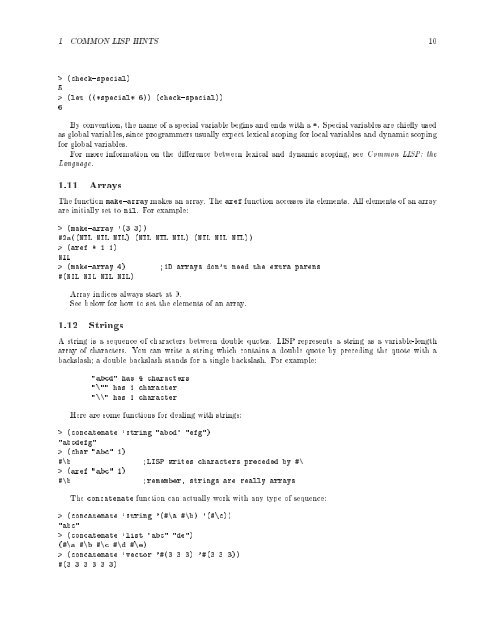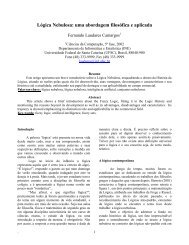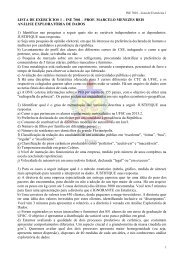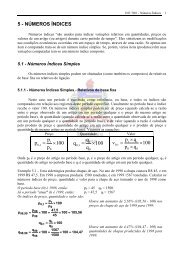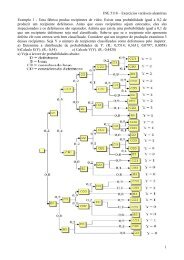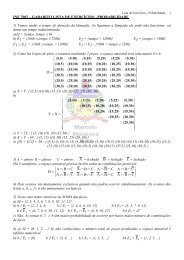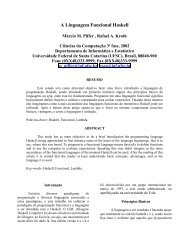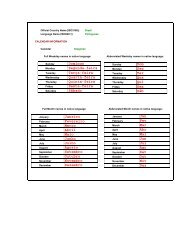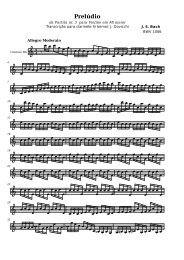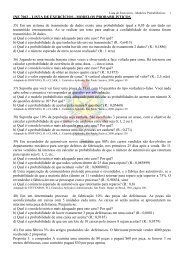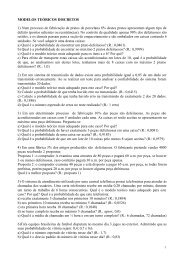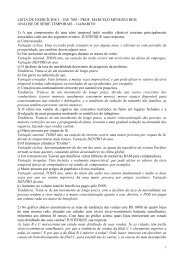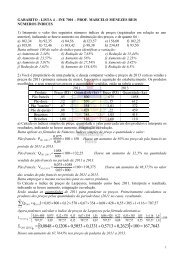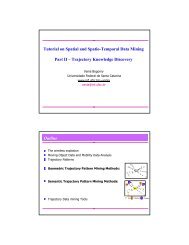common lisp hints
common lisp hints
common lisp hints
You also want an ePaper? Increase the reach of your titles
YUMPU automatically turns print PDFs into web optimized ePapers that Google loves.
1 COMMON LISP HINTS 10> (check-special)5> (let ((*special* 6)) (check-special))6By convention, the name of a special variable begins and ends with a *. Special variables are chiey usedas global variables, since programmers usually expect lexical scoping for local variables and dynamic scopingfor global variables.For more information on the dierence between lexical and dynamic scoping, see Common LISP: theLanguage.1.11 ArraysThe function make-array makes an array. Thearef function accesses its elements. All elements of an arrayare initially set to nil. For example:> (make-array '(3 3))#2a((NIL NIL NIL) (NIL NIL NIL) (NIL NIL NIL))> (aref * 1 1)NIL> (make-array 4) 1D arrays don't need the extra parens#(NIL NIL NIL NIL)Array indices always start at 0.See below for how to set the elements of an array.1.12 StringsA string is a sequence of characters between double quotes. LISP represents a string as a variable-lengtharray ofcharacters. You can write a string which contains a double quote by preceding the quote with abackslash a double backslash stands for a single backslash. For example:"abcd" has 4 characters"\"" has 1 character"\\" has 1 characterHere are some functions for dealing with strings:> (concatenate 'string "abcd" "efg")"abcdefg"> (char "abc" 1)#\b LISP writes characters preceded by #\> (aref "abc" 1)#\bremember, strings are really arraysThe concatenate function can actually work with any type of sequence:> (concatenate 'string '(#\a #\b) '(#\c))"abc"> (concatenate 'list "abc" "de")(#\a #\b #\c #\d #\e)> (concatenate 'vector '#(3 3 3) '#(3 3 3))#(3 3 3 3 3 3)


